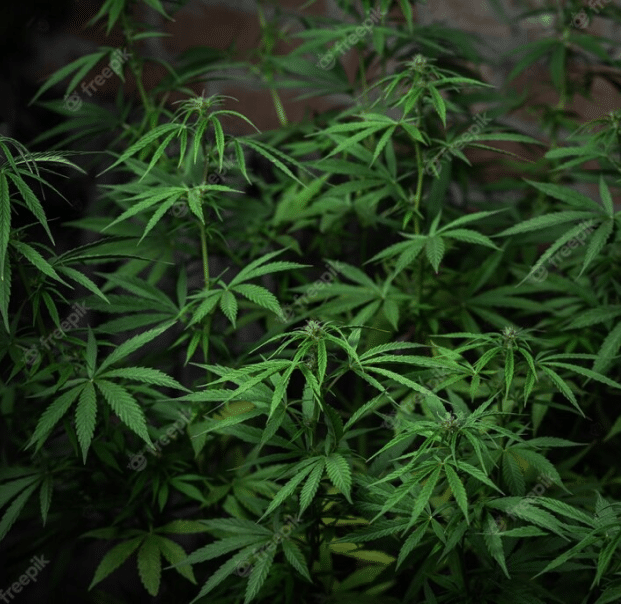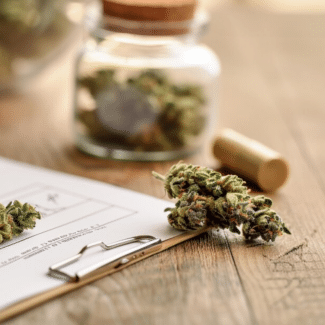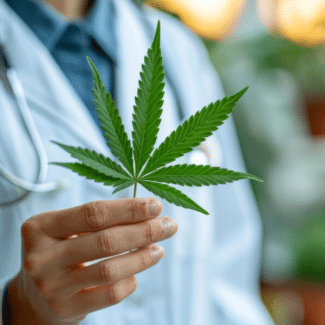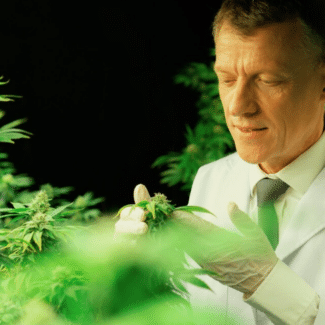How to Get a Cannabis License in Washington
This guide outlines the essential steps and considerations for obtaining a cannabis license in Washington State. It emphasizes the importance of understanding the regulatory framework, preparing a solid business plan, and gathering necessary documentation. Readers will find insights into navigating the application process, maintaining compliance with state regulations, and strategies for success in the cannabis industry.

Washington, being one of the pioneering states in recreational cannabis legalization, has established a robust regulatory framework emphasizing safety, compliance, and responsible practices. Whether your goal is to cultivate, process, or retail cannabis products, understanding the application process is essential in obtaining a Washington cannabis license.
Navigating the licensing journey involves understanding eligibility requirements, submission of relevant documentation, and background checks. However, with careful planning, thorough research, and adherence to state regulations, securing a cannabis license in Washington is within reach.
In this comprehensive guide, we’ll provide a step-by-step walkthrough to increase your knowledge regarding the complexities of the application process and share tips to overcome them.
Regulatory Landscape Washington Cannabis Licenses
The legal status of cannabis licenses in Washington is shaped by comprehensive regulations and oversight by various governmental bodies.
Washington State legalized recreational cannabis in 2012 through Initiative 502, which allows adults aged 21 and older to possess and use cannabis products.
The Washington State Liquor and Cannabis Board (WSLCB) is the primary regulatory agency responsible for issuing and regulating cannabis licenses in the state.
According to the Washington State Liquor and Cannabis Board (WSLCB), there are a total of approximately 485 active cannabis licenses in Washington. These licenses encompassed a range of activities within the cannabis industry, contributing to the state’s thriving cannabis market.
For cultivation, licenses are categorized into tiered production levels based on the canopy size. Tier 1 licenses allow for up to 2,000 square feet of canopy.
- Tier 2 licenses permit up to 10,000 square feet.
- Tier 3 licenses cover larger operations with up to 30,000 square feet.
- Tier 4 licenses are designated for the largest-scale cultivators with up to 90,000 square feet of canopy.
Retail licenses enable the sale of cannabis products directly to consumers. The number of retail licenses is limited and distributed through a lottery system, with a cap on the number of licenses per each county.
Washington offers licenses for cannabis manufacturing and processing facilities, including the production of edibles, concentrates, and other infused products. Distribution licenses are available for businesses involved in transporting cannabis products between licensed facilities.
Research and Prepare
Before applying for a Washington cannabis license, conducting thorough research is crucial. Start by visiting Washington State Liquor and Cannabis Board (WSLCB) website, where you can find comprehensive information about the specific requirements and criteria for obtaining a cannabis license in the state.
It’s important to understand the eligibility criteria, which may include residency requirements and background checks. The WSLCB website provides detailed guidelines on residency requirements and the types of background checks that applicants must undergo.
Also, familiarize yourself with the application timeline and any associated fees. The WSLCB website offers information on application periods, deadlines, and the necessary documentation to complete the application process.
It’s essential to review the licensing fees as well, as they vary depending on the license type and other factors.
By thoroughly researching the requirements, criteria, timelines, and fees, you’ll be well-prepared to navigate the licensing process successfully. Remember to regularly check the WSLCB website for any updates or changes to the application process.
Develop a Solid Business Plan
Developing a solid business plan is crucial when applying for a cannabis license in Washington. A well-crafted business plan demonstrates your understanding of the industry, market dynamics, and regulatory compliance. Tailoring your plan to the unique characteristics of the Washington cannabis market is essential for success.
Include a thorough market analysis that assesses the demand, competition, and trends specific to Washington. Identify your target customer base, their preferences, and potential market segments. Incorporate financial projections that showcase your revenue streams, anticipated expenses, and profitability projections.
Security measures are critical considerations. Outline plans for facility security, inventory control, surveillance systems, and employee training to comply with state regulations and ensure the safety of your operation.
Demonstrate a strong commitment to compliance by outlining strategies for adhering to Washington’s cannabis regulations. This includes record-keeping practices, quality control measures, and protocols for testing and labeling.
Consider seeking professional assistance or consulting services specializing in the cannabis industry. They can provide valuable insights, expertise, and guidance in developing a comprehensive business plan that aligns with the specific requirements of licensing authorities in Washington.
Remember, a well-crafted business plan not only helps with the licensing process but also serves as a roadmap for your future success in the cannabis industry.
Assemble the Necessary Documentation
When applying for a cannabis license in Washington, assembling the necessary documentation is a critical step. Here’s a checklist of required documents, although it may not be exhaustive:
- Proof of identification and residency in Washington.
- Proof of financial stability and funding sources.
- Property and lease agreements (if applicable) compliant with Washington regulations.
- Security plans and measures meeting Washington standards.
- Standard operating procedures (SOPs) for cultivation, manufacturing, or retail operations compliant with Washington regulations.
- Employment and labor compliance documents specific to Washington.
- Business entity documents (Articles of Incorporation, Operating Agreement, etc.).
- Financial statements (balance sheets, income statements, cash flow statements).
- Tax compliance documentation (tax returns, licenses, permits).
- Insurance coverage proof (general liability, product liability, workers’ compensation).
- Environmental compliance documentation (waste management plans, procedures).
- Record-keeping and traceability systems plans and procedures.
Submitting the Application
Submitting the application for a cannabis license in Washington requires careful attention to detail and adherence to submission guidelines. Ensure that all required information is accurately filled, supporting documents are attached, and any applicable fees are paid on time.
Tip: Highlight your qualifications, experience, and commitment to compliance and responsible operations in the Washington market.
Craft a compelling narrative that showcases your understanding of the industry and dedication to meeting regulatory requirements. Double-check your application for accuracy before submitting it, as mistakes or omissions could delay the process.
Application Review and Compliance Inspection
After submitting your cannabis license application in Washington, it will undergo a review process by the Washington State Liquor and Cannabis Board (WSLCB).
The timeline for application review can vary depending on the specific license type and the volume of applications received. It’s important to note that the review process may take several months.
During this time, it is crucial to maintain ongoing communication with the licensing authorities. Respond promptly to any inquiries or requests for additional information from the WSLCB to ensure a smooth application review process. Keep thorough documentation of all correspondence and maintain a professional and cooperative approach.
Once the initial application review is completed, the WSLCB may conduct compliance inspections of your proposed cannabis facility. These inspections aim to verify that your operation meets the necessary regulatory standards outlined by Washington state. It is essential to prepare for these inspections by familiarizing yourself with the specific compliance requirements and guidelines set by the WSLCB.
To navigate compliance inspections successfully, ensure that your facility is compliant with all applicable regulations. This includes having proper security measures in place, maintaining accurate records and traceability systems, and adhering to health and safety protocols. Conduct internal audits to identify and address any potential compliance issues beforehand.
During the compliance inspection, be cooperative, transparent, and open to addressing any concerns or questions raised by the inspector. If any deficiencies are identified, promptly take corrective actions to rectify them and demonstrate your commitment to compliance and responsible operations.
Remaining Compliant with Washington Regulations
Remaining compliant with state regulations and license conditions is paramount for maintaining a successful cannabis business in Washington. Ongoing compliance ensures adherence to the specific requirements outlined by the Washington State Liquor and Cannabis Board (WSLCB) and helps maintain a positive reputation within the industry.
Common compliance requirements in Washington include rigorous record-keeping practices to track inventory, sales, and financial transactions. Accurate and detailed records are essential for demonstrating compliance during inspections or audits.
Security measures are crucial to safeguarding your cannabis operation. Implement robust security systems, including surveillance cameras, access controls, and alarm systems, as required by Washington regulations. Regularly assess and update your security protocols to address any vulnerabilities.
Washington places emphasis on product testing and labeling to ensure consumer safety. Comply with the state’s testing requirements for potency, contaminants, and other quality standards. Properly label cannabis products with accurate information regarding potency, ingredients, and warning labels.
To remain compliant, establish comprehensive compliance protocols tailored to Washington’s regulations. Implement internal audits and checks to identify and rectify any non-compliance issues promptly. Stay informed about any regulatory updates or changes through the WSLCB’s website, industry newsletters, and participation in industry events.
Maintaining open communication with the WSLCB is crucial. Attend mandatory meetings, respond to inquiries, and promptly address any violations or warnings. Failure to comply with regulations may lead to fines, penalties, or even the revocation of your cannabis license.
Conclusion
Obtaining a cannabis license in Washington requires meticulous preparation, strict adherence to regulations, and a comprehensive understanding of the state’s specific licensing process.
This comprehensive guide provides step-by-step instructions to help individuals successfully navigate the complexities and maximize their chances of acquiring a cannabis license in Washington.
It’s essential to stay informed about the latest updates, seek professional guidance when needed, and maintain an unwavering commitment to operating a compliant and responsible cannabis business within the bounds of Washington’s regulatory framework.
By approaching the licensing process with diligence and dedication, individuals can position themselves for success in Washington’s thriving cannabis industry.



